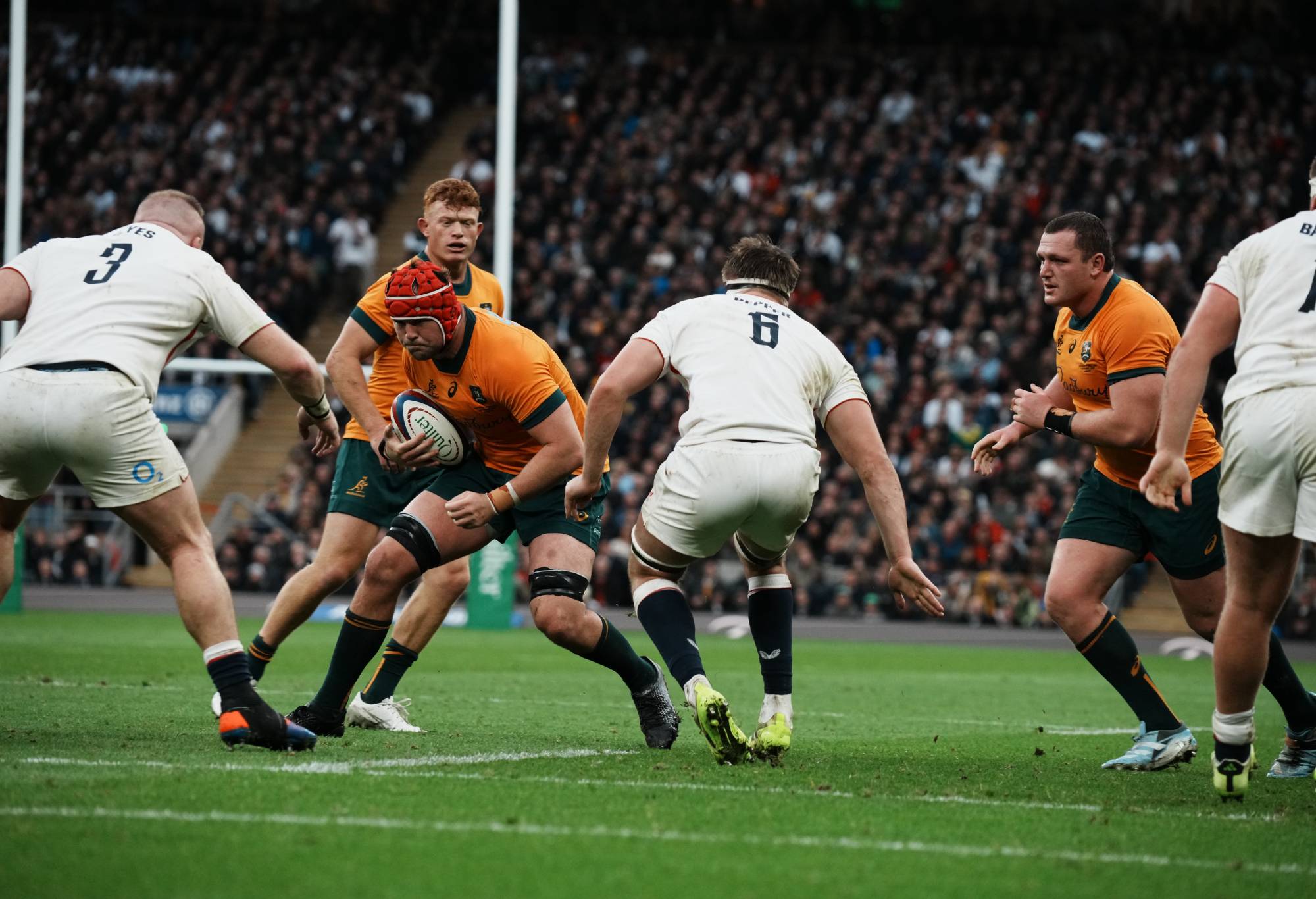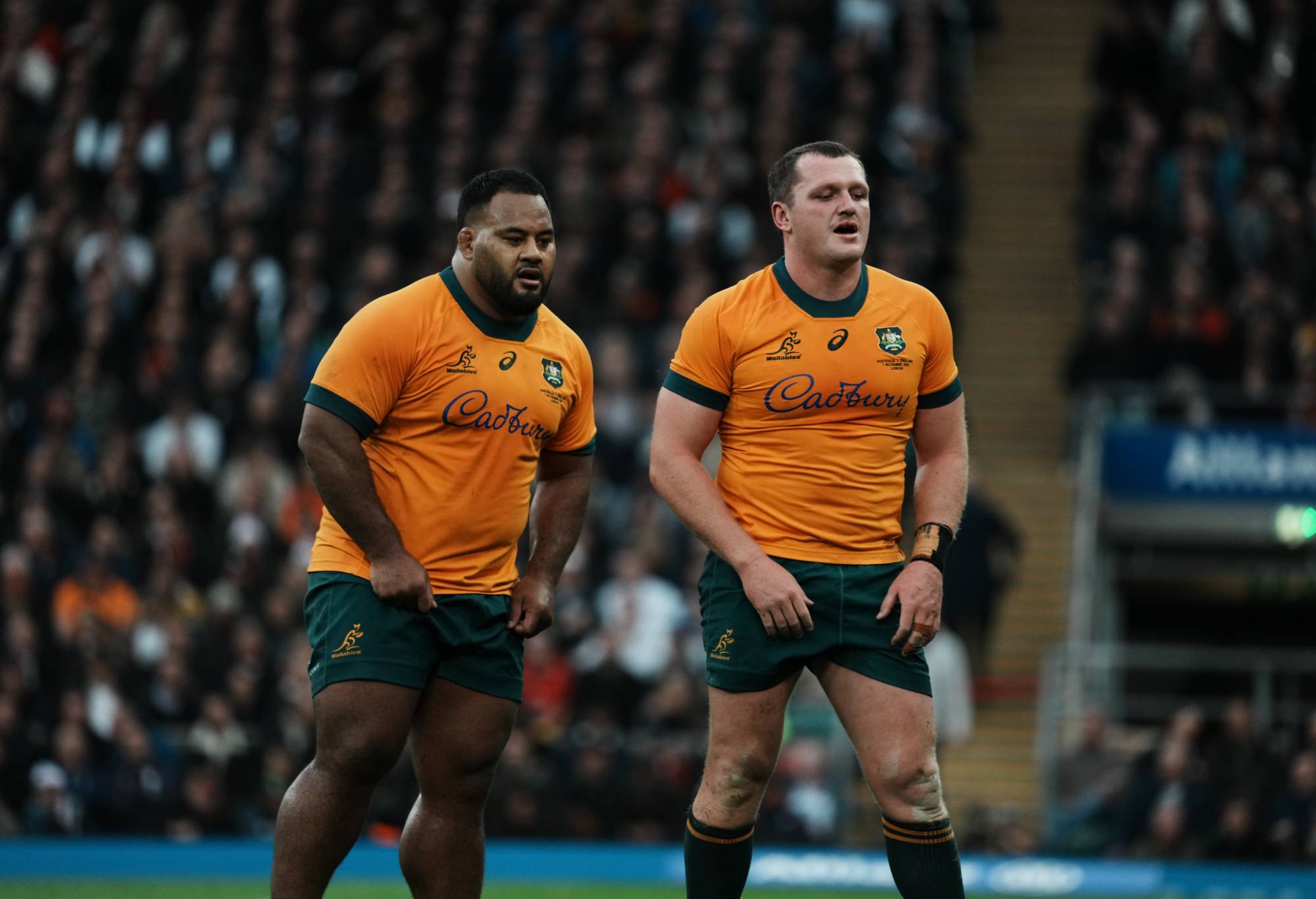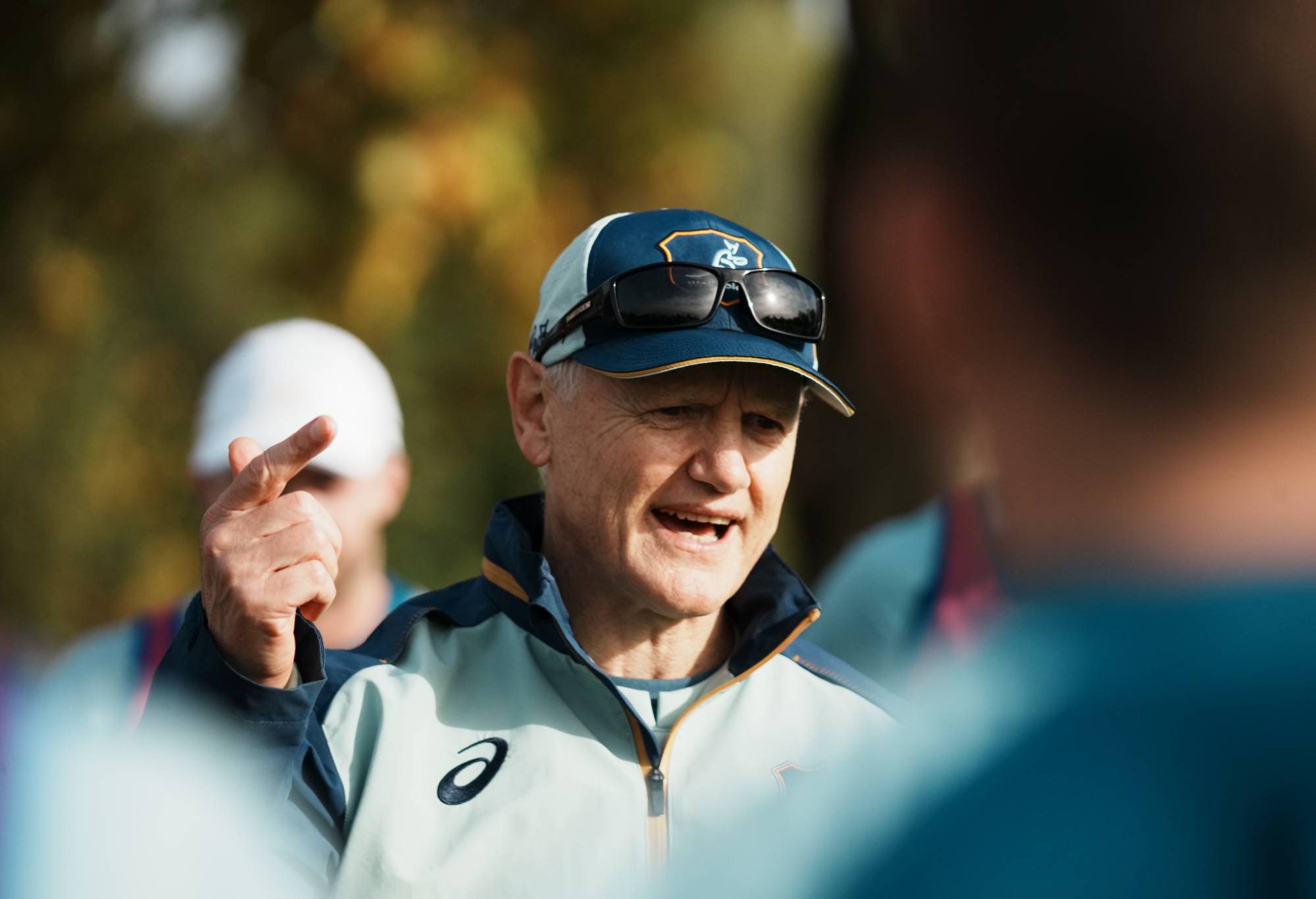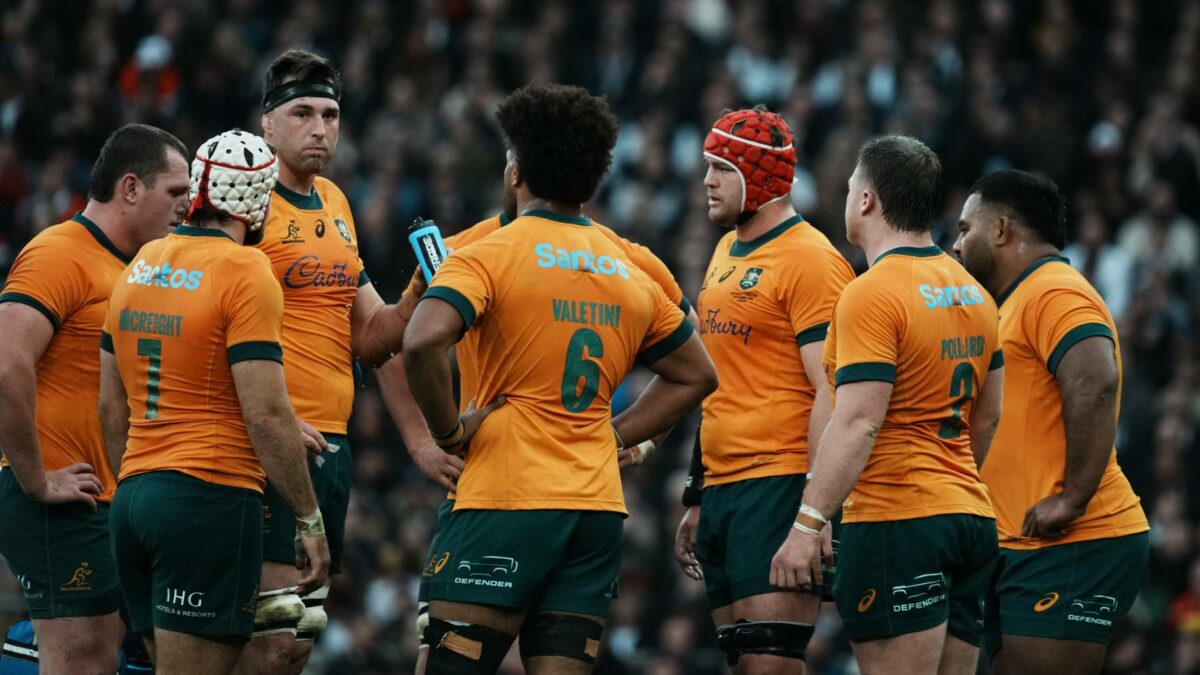John Connolly believes Joe Schmidt will be having “nightmares” ahead of this weekend’s Test against Italy, while another former Wallabies coach, Ewen McKenzie, has implored the New Zealander to bring some “excitement” back to the side’s game-plan.
After an encouraging first half of the Test season where the Wallabies held their own against the Lions and shocked the Springboks at Ellis Park, Schmidt’s side has lost four of their past five Tests and is hanging onto seventh spot on World Rugby’s rankings ahead of December’s 2027 World Cup draw. The top six will be seeded for the World Cup.
In addition, the Wallabies’ game-plan has unravelled over the past month.
After James O’Connor helped ignite the Wallabies’ attack in South Africa, Schmidt’s side has struggled to score points.
Indeed, the Wallabies have scored on average 13.33 points over the past three Tests, a stat that takes into account the 19-15 win over Japan in Tokyo.
The ugly performance came 12 months after the Wallabies stunned England at Twickenham, as Max Jorgensen scored spectacularly out wide to seal an incredible 42-37 victory.
But the Wallabies that ran out over the weekend were a shell of the side that shocked the planet one year earlier, leading to 2003 World Cup winning halfback Matt Dawson describing the performance as “dreadful” and “the worst I have seen them ever”.

Harry Wilson carries the ball forward during the Wallabies’ defeat to England at Twickenham. Photo: Julius Dimataga, Rugby Australia
McKenzie, the former World Cup winning prop, who coached the Wallabies between 2013 and 2014 and led the Reds to the 2011 Super Rugby title, said he was surprised by the side’s lack of ambition.
“Australia just didn’t seem to be able to create anything with any great purpose,” McKenzie said alongside David Pembroke on Rugby Unity. “You take out the intercept and they could have easily been zero.”
In particular, McKenzie was scathing about the Wallabies’ attack, which failed to fire a shot as Schmidt’s chargers kept the ball tight.
It meant Test flyers Jorgensen and Joseph-Aukuso Suaalii, who were at the heart of the Wallabies’ win 12 months ago, barely saw the ball.
“Australia seemed to be focused very much in the contest and they had no momentum in their attack at all,” he said.
“In fact, they didn’t even look like trying to get across the advantage line in the second half. It all seemed to be pulling up short in their rucks and maybe there was a strategy, I don’t know, but there was nothing after that.
“I was actually starting to count the amount of times the ball went from nine to ten and then ten to twelve, and then after that, and there were just so many times we’re just punching the ball up one or two off the ruck and that was it.
“The reality is the line breaks were created by the forwards for Australia. It was the short passing game of the props and [Harry] Wilson putting other forwards into holes, and I’m thinking the forwards can do it, what’s going on?’
“There wasn’t any cohesion at all in terms of what the backline’s trying to do.”

Taniela Tupou and Angus Bell in action against England. Photo: Julius Dimatag, Rugby Australia
In the post-script, Schmidt agreed with a reporter’s premise that the Wallabies looked sluggish and time had perhaps caught up with the team after a taxing Lions and Rugby Championship campaign.
“I felt the same way,” Schmidt initially replied.
The question came a fortnight after Schmidt said he would have to test his depth because they would run the risk of “fatigue” setting in.
Former Test outside back Cameron Shephard said on Stan Sport’s Between Two Posts that the Wallabies looked “tired” and “lazy”, especially in effort areas like chasing back on kicks to support the man under the high ball.
But Connolly slammed the response.
“That’s rubbish. It’ll be 15 Tests over 20-odd weeks,” he told The Roar. “Mate, they’re professional footballers.
“We should be getting better, but we’re getting worse.”
The question surrounding the Wallabies’ long campaign was also asked to McKenzie, but the respected former coach, who was also an assistant when Australia made the 2003 final, said it was possible Schmidt’s game-plan was also catching up with the current side.
“I think there’s a bit of a narrative about that,” McKenzie said. “And it’s easy to set up that. But we’ve chosen to play a fairly attritional brand of rugby. It’s heavy duty.
“In close, when we’re on attack, a lot of involvements by players in ruck cleanouts. It’s all very forceful. Sure it’s tiring, but that’s [the path we’ve chosen].
“There’s a lot of body clashing going on for the Wallabies now and then the forward pack’s a little bit more lightweight than it was when you’ve got the likes of [Will] Skelton [available].
“So there’s a bit of a cost to that style of football … when you’re bashing into people. A lot of body clashes and I assume that they’re training that way too to practise it.”
McKenzie, whose Reds played one of the most exciting brands of rugby Australian rugby has seen and helped unlock Quade Cooper during his reign at the Super Rugby franchise, called on Schmidt to tweak his game-plan to help bring some of the Wallabies’ X-factors players into the contest.
“We haven’t liberated [the players],” he said. “We haven’t used the width of the field regularly to try and create some sort of bit of freshness.
“It’s all very in close, intense, and so you do pay a price for that.
“And then teams come back, they’ve obviously watched how Australia play. They’ve come back and they’re actually now defending really hard on the ball. So that’s requiring more involvement.
“So you sort of get what you get for how you’re trying to play the game. There’s no freshness, there’s no excitement. The excitement’s gone. And that’s to some extent looks to be how they’ve chosen to play the game.
“You can’t just say it’s the opposition’s fault. You’ve got to say, what’s the tactics? Because Jorgensen was unsighted. He had a couple of touches, one on a kick and there was one time he ran around the back, but that was the only time. They took him off with 15-20 to go, I couldn’t believe it. He was a match-winner last year. Suaalii is trying but, you know, teams are marking him pretty hard and bashing him when he’s got the ball, so he’s got three guys on him.
“There isn’t any sort of the expression. The ball’s not moving around, so you’re not fatiguing the opposition because they’re all quite direct. So yes, you do pay that price when you’re doing that every week.”

Ewen McKenzie and John Connolly believe Joe Schmidt will need to reassess how he plays the game. Photo: Julius Dimataga, Rugby Australia
Connolly agreed that Schmidt would have to think long and hard at how the Wallabies are playing two years out from the World Cup.
“I think we’re treading water with Joe at the moment,” said Connolly, who acknowledged that Les Kiss would take over in mid-2026.
“He’ll also have to review how they play the game.”
Connolly also said selection remained one of the major cornerstones of coaching and said Sunday’s (4am AEDT) Test against Italy was a huge one ahead of December’s World Cup draw.
“He’ll have nightmares about this weekend,” Connolly said.
“Italy has performed OK over the last couple of years. What does he do? He saw the second-stringers hang on against Japan, what does he risk? What’s he prepared to risk against Italy?
“This will be a real reality check for us by the end of this tour. We should put Italy away, although Italy have improved. And what does he do this week? Does he go full-strength or does he give players a run?
“The stakes this weekend are huge against Italy. If we drop this game, then we’re walking into Ireland and France needing to win.”

